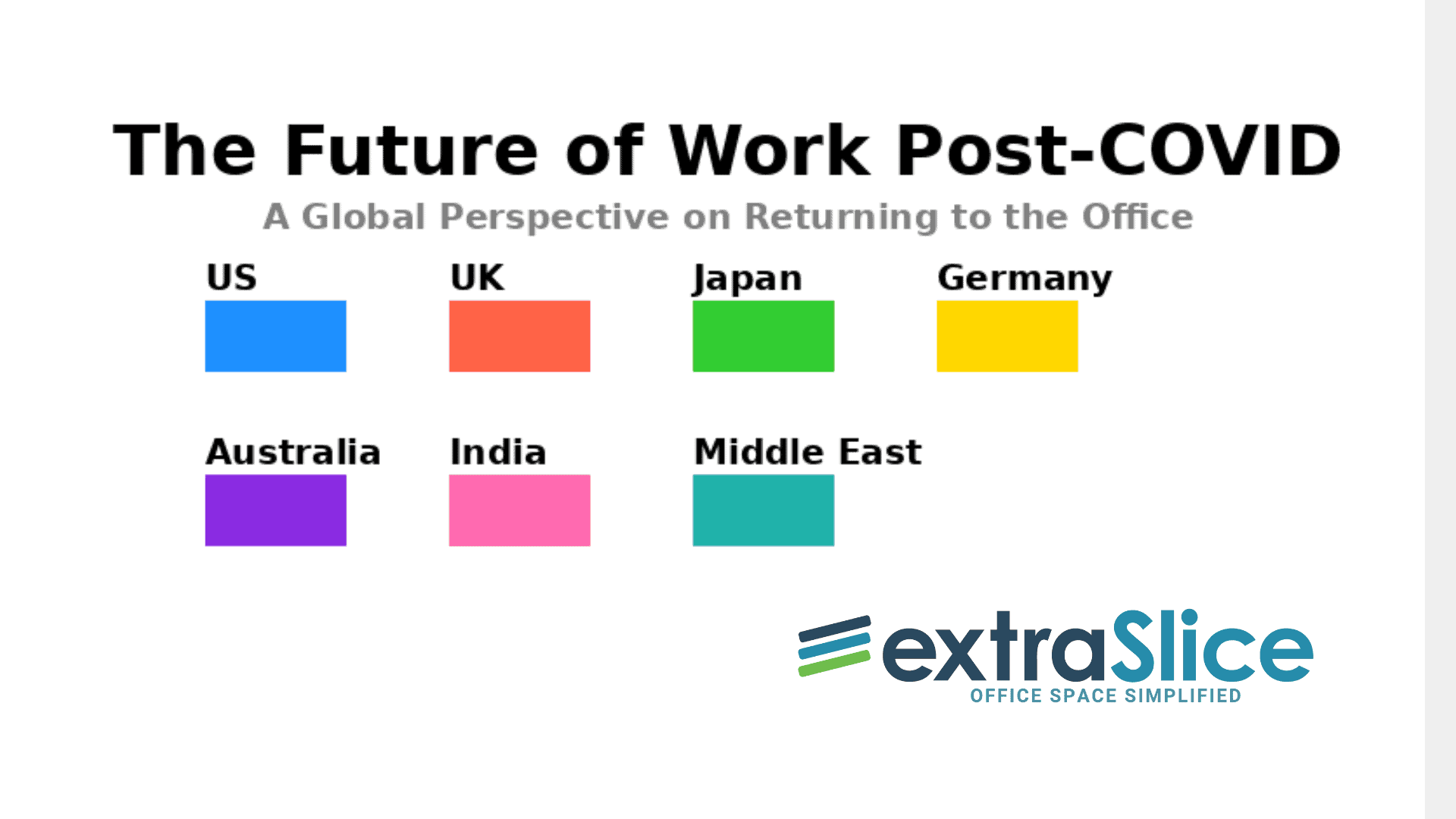The COVID-19 pandemic has profoundly transformed work environments worldwide, accelerating the trend towards remote work and leading to significant shifts in office culture. As countries emerge from the pandemic, the approach to returning to the office varies widely, reflecting differences in culture, economic imperatives, and public health strategies. This article explores the trends in returning to office work in different countries post-COVID, highlighting the evolving nature of workspaces and employee expectations, and includes an additional perspective from the Middle East.
United States
In the United States, there’s a noticeable trend towards a hybrid work model, where employees split their time between working from home and the office. Companies like Google, Apple, and Facebook have led the way in adopting flexible work policies that allow for a blend of in-office and remote work. However, the transition has not been without challenges, including managing team dynamics and ensuring equitable access to resources and opportunities for all employees.
United Kingdom
The UK has seen a cautious approach to returning to the office, with many companies extending remote work options well into the post-pandemic period. London’s financial district, traditionally bustling with office workers, has experienced a slower return to pre-pandemic levels of occupancy. The UK government has encouraged a return to the workplace but also supports flexible working arrangements as a permanent option for those who prefer it.
Japan
Japan’s work culture, known for its emphasis on office attendance and long working hours, has seen a gradual shift towards accepting remote work. However, the change has been slower compared to Western countries. Major corporations in Japan have begun to adopt more flexible work policies, but many employees still face pressure to spend long hours in the office, reflecting the deeply ingrained value placed on physical presence at work.
Germany
Germany has embraced the shift towards flexible working environments with a strong emphasis on work-life balance. The German government has proposed legislation to make remote work a permanent option for employees, reflecting a proactive approach to adapting to the changes brought about by the pandemic. Companies are investing in digital infrastructure to support remote work and rethinking office spaces to accommodate those who return.
Australia
Australia has seen a rapid adoption of hybrid work models, with many businesses in Sydney and Melbourne offering employees the choice to work remotely or from the office. Australian companies are reconfiguring office spaces to make them more collaborative and less about individual workstations, anticipating a future where office attendance is more about interaction than solitary work.
India
India’s return to the office has been marked by regional variations, with technology and IT companies leading the charge in adopting flexible work policies. However, many businesses still prefer traditional office work, citing concerns over data security and collaboration. The Indian government has encouraged IT parks and business centers to adopt more flexible work models, but the shift has been uneven across different sectors.
Middle East
In the Middle East, particularly in countries like the United Arab Emirates (UAE) and Saudi Arabia, there’s a growing acceptance of remote and hybrid work models, albeit at a varied pace. The UAE, for example, has seen a significant portion of its workforce continue remote work arrangements, with Dubai positioning itself as a hub for digital nomads and remote workers. This shift aligns with the region’s broader goals of economic diversification and embracing digital transformation. However, cultural norms and the emphasis on in-person meetings and networking mean that the office remains a crucial place for professional interactions in many sectors. Governments and businesses in the region are navigating these changes by offering more flexibility while also investing in technology and infrastructure to support a blend of remote and in-office work.
Conclusion
The post-COVID era is defining a new normal for office work across the globe, with an evident shift towards flexible, hybrid models that cater to the well-being and preferences of employees while still meeting business needs. These trends reflect a broader reevaluation of work-life balance, productivity, and the role of physical office spaces in fostering innovation and collaboration. As countries and regions, including the Middle East, navigate these changes, the future of work is likely to continue evolving, shaped by cultural norms, technological advancements, and lessons learned during the pandemic.
ExtraSlice: Leading the Way in WaaS Since 2021
ExtraSlice has been at the forefront of the WaaS revolution since 2021, leading the transformation of office leasing with advanced Proptech solutions. We offer a diverse range of workspace solutions, from dedicated offices for individual tenants to shared co-tenancy spaces, all focused on providing flexibility, efficiency, and choice. Our commitment lies in redefining the workplace experience to cater to the dynamic requirements of today’s businesses.
Discover more about our innovative workspace solutions at: extraslice.com.






